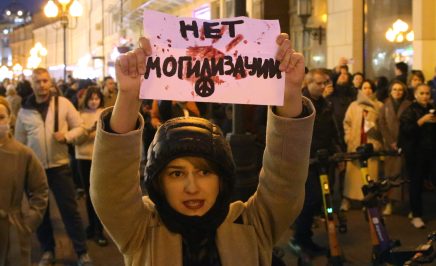- Almost three-quarters (73%) polled across 15 countries support proposal that FIFA use World Cup revenues to compensate workers who suffered in the preparation of the tournament
- More than two-thirds (67%) want their national Football Associations to speak out publicly about the human rights issues associated with the 2022 Qatar World Cup
- FIFA should establish remediation programme before World Cup kick-off on 20 November 2022
A new global poll commissioned by Amnesty International has revealed that almost three-quarters (73%) of adults in the countries surveyed would support FIFA compensating migrant workers who suffered during preparations for the 2022 World Cup in Qatar. Support is even higher among those likely to watch at least one game at the tournament (84%).
The YouGov poll, which surveyed more than 17,000 adults across 15 countries, also showed that an overwhelming majority (67%) want their national Football Associations to speak out publicly about the human rights issues associated with the 2022 Qatar World Cup, including in support of compensation for migrant workers.
“These findings send a clear message to football’s leadership. Across the globe, people are united in their desire to see FIFA step up and make amends for the suffering endured by migrant workers in Qatar. They also want to see their national associations take a much firmer stance,” said Steve Cockburn, Amnesty International’s Head of Economic and Social Justice.
“With less than 50 days until kick off, the clock is ticking. But there is still time for FIFA to do the right thing. Supporters don’t want a World Cup that’s indelibly tainted by human rights abuses. The past cannot be undone, but a compensation programme is a clear and simple way that FIFA and Qatar can provide at least some measure of redress to the hundreds of thousands of workers who made this tournament possible.”
The findings back the #PayUpFIFA campaign launched by a coalition of human rights organizations—including Amnesty International—fans groups and trade unions in May 2022, which calls on FIFA to set aside a fund to compensate workers and prevent future abuses. The coalition demands FIFA sets aside a minimum of $440 million for the fund – the equivalent it hands out in prize money at the World Cup. FIFA will make an estimated $6 billion in revenues from the tournament.
Following the launch of the campaign, FIFA has told Amnesty International they are considering the proposal but have issued no public response to date.
The #PayUpFIFA campaign has also highlighted that national Football Associations have a responsibility under international human rights standards to support remedy for migrant workers given their participation in the World Cup. However, while the Belgian, Danish, Dutch, English, German, and Norwegian Football Associations have so far expressed support for the principle of compensation when asked by journalists, no Football Association has yet made an official public statement specifically calling on FIFA to establish such a remediation programme.
Global support
YouGov surveyed 17,477 adults in Argentina, Belgium, Denmark, Finland, France, Germany, Kenya, Mexico, Morocco, Netherlands, Norway, Spain, Switzerland, UK, and the USA. Of these, 54% said they were likely to watch at least one game at the World Cup.
Nearly three quarters (73%) of those surveyed—and 84% of those likely to watch at least one World Cup match—said they would support the proposal that FIFA use some of the money generated by the 2022 World Cup to compensate migrant workers who suffered in the preparation of the tournament. The strongest support came in Kenya, where 93% of respondents supported compensation. Thousands of Kenyans work in Qatar where Amnesty International has documented numerous abuses including forced labour of Kenyan security guards, construction workers and domestic workers.
Support for compensation also exceeded three-quarters in 2026 World Cup co-hosts Mexico (86%), and also Spain (83%), Argentina (82%), Switzerland (81%), Finland (79%) and Belgium (77%), while support among likely World Cup viewers was even higher — above 80% in 11 of the 15 countries. Only 10% of those surveyed said they would oppose FIFA providing compensation, with the remaining 17% saying they did not know either way.
More than two-thirds (67%) of those surveyed also think their national Football Associations should speak out publicly about the human rights issues associated with the 2022 Qatar World Cup, including calling for compensation for migrant workers. Support is highest in Kenya (93%) and above 70% in Spain (74%), Finland (71%), Mexico (71%), France (70%), Norway (70%), Switzerland (70%) and UK (70%). Support was again higher (71%) among those likely to watch at least one game at the tournament.
#PayUpFIFA
Since 2010, when FIFA awarded the 2022 World Cup to Qatar without requiring any improvement in labour protections, hundreds of thousands of migrant workers have faced human rights abuses while employed to build and service the stadiums, hotels, transport and other infrastructure necessary to host the tournament.
Amnesty International is calling on FIFA and Qatar to set up a remediation programme with the full participation of workers, trade unions, the International Labour Organization and civil society. The programme should be established, and an initial meeting held between key stakeholders, before the tournament kicks off on 20 November 2022.
As well as covering an array of compensation costs, including reimbursing unpaid wages, the extortionate recruitment fees paid by hundreds of thousands of workers, and compensation for injuries and deaths, the programme should also support initiatives to protect workers’ rights in the future.
Background
The full list of poll results is available here.
FIFA’s response to Amnesty International’s report on remedy in May 2022 is included in the report’s Annex. The report was accompanied by an open letter to FIFA President Gianni Infantino from Amnesty International and a coalition of human rights organizations, unions, and fan groups.
Since 2018, Qatar has introduced a series of important labour reforms that aim to improve workers’ rights, but the lack of enforcement means that serious abuses persist. Improvements for workers on official FIFA sites, such as stadiums, were also introduced in 2014 via the Supreme Committee’s Worker Welfare Standards, but these standards are not universally respected and only cover a minority of the hundreds of thousands of workers on World Cup-related projects.
One positive initiative launched in 2018 by the Qatari body responsible for organizing the World Cup, the Supreme Committee, includes an agreement with contractors on official World Cup sites to reimburse the recruitment fees of 48,000 workers. However, this agreement does not cover the hundreds of thousands of workers on other infrastructure projects, such as transport, utilities and hotels, essential to the World Cup.
All figures, unless otherwise stated, are from YouGov Plc. Total sample size was 17477 adults. Fieldwork was undertaken between 16 August – 6 September 2022. The survey was carried out online. The figures have been weighted and are representative of all surveyed countries adults (aged 18+).




